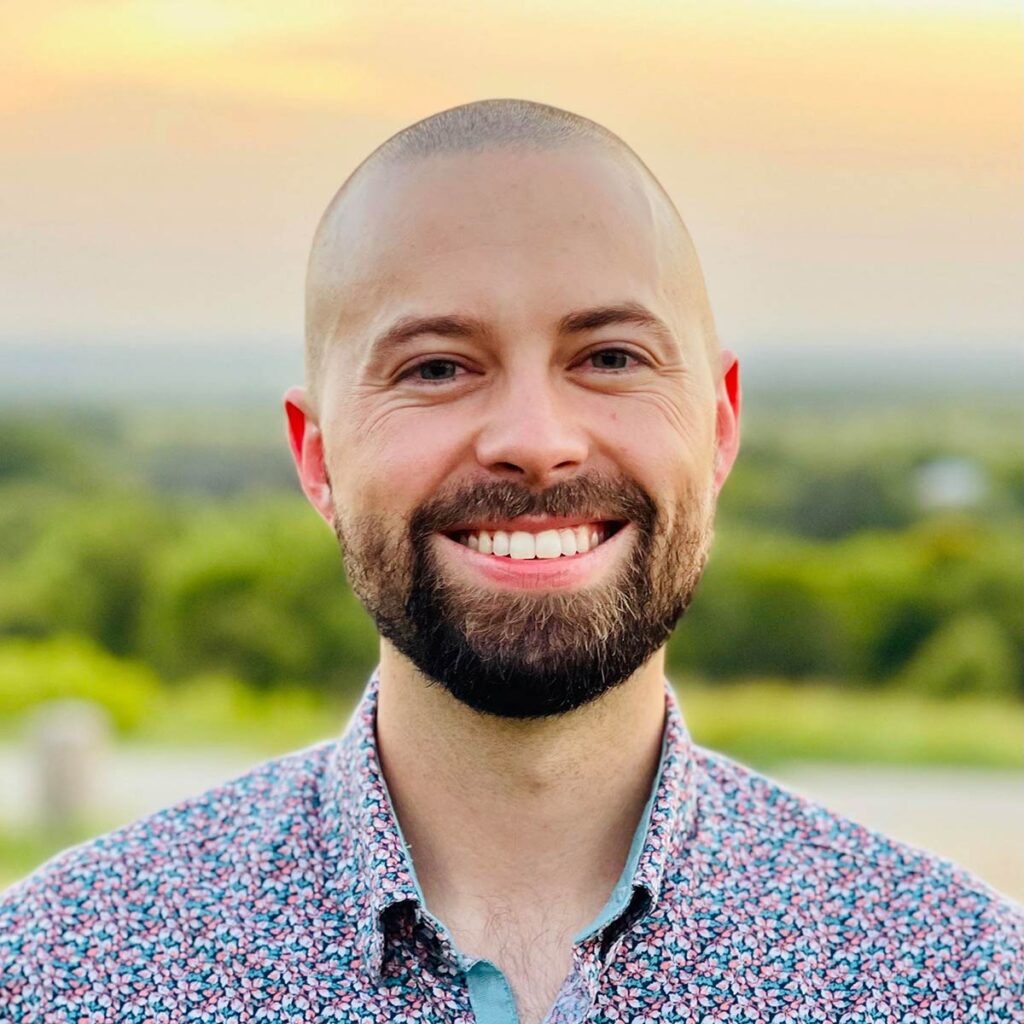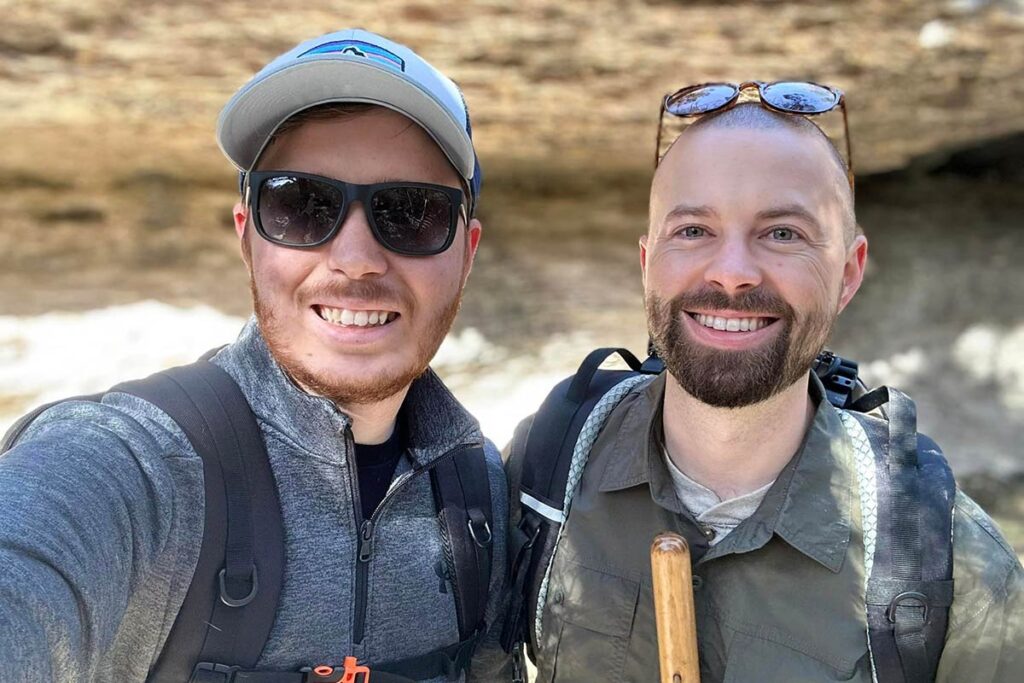From an Impossibility to Reality: Distance Learning and Scholarship Support Transforms Trenton Ormsbee-Hale’s Future

MDiv student Trenton Ormsbee-Hale remembers clearly when he got into seminary the first time around, before he joined the Lutheran church and before he knew anything about LSTC. He had applied widely, with much success. “I remember just getting the first acceptance and tearing up and crying at the mailbox,” he says. “I thought, ‘This is something possible.’”
That realization was important, especially for someone who had felt the call to ministry as early as high school and who had in fact spent the first two years of his college experience in formation with Franciscan friars. But so, too, was reality: the reality that Ormsbee-Hale just did not have the resources that would support attending a graduate program.
He turned down every single acceptance, and entered the workforce instead, opting for a life of service in non-profit administration. It was fulfilling; Ormsbee-Hale loved his work and the people he worked with (he still does). However, the call to ministry that had nestled in his heart so many years ago refused to be silent. The idea to serve a congregation—an idea he had fostered for many years—persisted.
Still, Ormsbee-Hale, who ended up transferring from Our Lady of the Lake University to Sam Houston State University, both in Texas, to complete an undergraduate degree in philosophy, had some hesitations about returning to a seminary environment—even though all of his professors and mentors in congregational spaces heavily encouraged him to do so. Some of his hesitations were practical, financial. Others went deeper. Would he be able to find a program that wouldn’t force his husband to move? Would he be able to find one that aligned with his values? “I had gotten really fed up with the institutional church’s unwillingness to think beyond the physical walls of the church,” Ormsbee-Hale said.
That’s where the Lutheran School of Theology at Chicago came in. Here was a school committed to global thinking, to impacting people’s lives, and to diversity. “Hearing about LSTC and their public church commitment to thinking about, acknowledging, and naming that the church is not isolated, and that it is necessary for us to begin thinking about church in a larger and more expansive way…I just thought: that was it.”After identifying LSTC as his top choice for an MDiv, the practicalities came in. “My husband and I tried to crunch the numbers,” Ormsbee-Hale remembers. “We were facing the scenario: this is just not going to be workable.” That’s when the admissions office at LSTC came through.

Ormsbee-Hale got in touch with Professor of the New Testament Barbara Rossing, who assured him, “Look, don’t worry about it, there are enough options. We have scholarships here.” With Dr. Rossing and the admission department as advocates, Ormsbee-Hale completed his application and was accepted with a full-tuition Presidents Visionary Scholarship. Even better: he could continue to serve his community in Texas and continue to work part time for the faith-based non-profit he works for thanks to LSTC’s commitment to offering distance learning options for all degree programs.
The package was so generous, at first, that Ormsbee-Hale initially balked. “I was like—my husband and I—we can pay something. I just felt really bad, I don’t know.” His advocates at LSTC assured him, tongue -in-cheek, that they could adjust the scholarship to be lower if he really wanted. The message was clear: you can find other ways to give back.
Now, Ormsbee-Hale is looking forward to his Clinical Pastoral Education beginning this summer and continuing his path towards his MDiv. And to other students who discern the call to ministry he has some advice: “Just apply, because you need to be here. You need to be here. So apply. And then the next step will be: we’ll figure out how to pay for it. And you have everyone here in your corner at LSTC.”